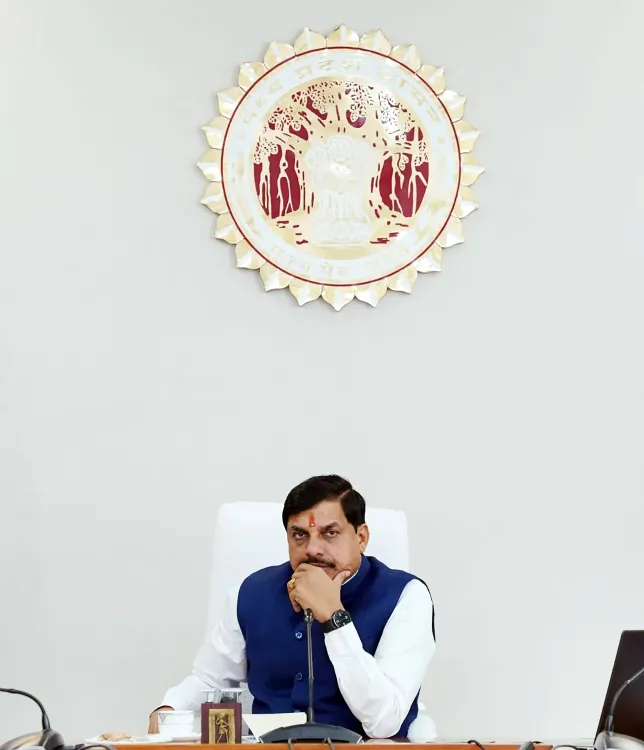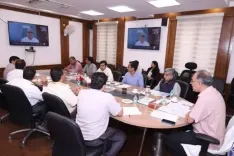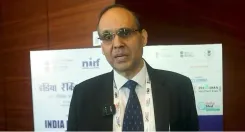Can NDDB-MP Pact Help CM Yadav Achieve High-Yield Cattle Varieties to Double Milk Production?

Synopsis
Key Takeaways
- Madhya Pradesh aims to double its milk production.
- Importing superior cattle breeds is a key strategy.
- Target to raise contribution to national milk production to 20%.
- Value addition for dairy products is mandatory.
- Financial incentives for farmers are being proposed.
Bhopal, May 5 (NationPress) In an effort to double milk production in Madhya Pradesh, the state is formulating a detailed strategy to import high-quality breeds of cattle from other areas, guaranteeing their accessibility to local farmers.
Chief Minister Dr. Mohan Yadav has urged officials to expedite initiatives aimed at enhancing milk output, reiterating his dedication to increasing the state's share of the nation's total milk production from the present 9 percent to 20 percent.
After a review meeting in Bhopal on Monday, he posted on his X account, "The decision to more than double milk production will lay the groundwork for the prosperity of our cattle herders."
During the evaluation, Dr. Yadav stressed the importance of fully leveraging the National Dairy Development Board's (NDDB) knowledge in the dairy field.
He pointed out the need to optimize and simplify the process of sourcing superior breeds of cows and buffaloes from other states, ensuring they are easily accessible for farmers.
Earlier in April this year, a partnership was established between the NDDB and the Madhya Pradesh State Cooperative Milk Union, witnessed by Union Home Minister Amit Shah.
"To enable an increase in milk production, we are committed to raising Madhya Pradesh’s share of national milk production from 9 percent to 20 percent.
"This ambitious goal will be achieved through diligent promotion of cattle rearing, ushering in an era of agricultural and economic growth," he affirmed on X.
Union Home Minister Shah advised the state government to broaden the network of milk producers to encompass more Primary Cooperative Societies (PACs), ensuring coverage across at least 50 percent of the state.
He also suggested introducing a Rs 5 per-litre incentive for milk producers.
HM Shah pointed out the limited number of PACs in the state and encouraged an increase from the current 7,000 to a level where at least half of Madhya Pradesh is covered.
Dr. Yadav further emphasized that all milk produced within the state should undergo value addition prior to being exported outside its borders.
He advocated for extending consultancy services not only to cooperative unions but also to private dairy businesses.
He mandated that dairy products must be processed for value addition before being transported out of the state.
The Chief Minister also highlighted the ongoing establishment of large cow shelters across Madhya Pradesh, asserting that their effective management would significantly boost milk production.
The state has allocated Rs 505 crore in its annual budget 2025-26 for the development of cowsheds under a dedicated scheme.
He proposed that private universities introduce specialized courses in dairy technology and animal husbandry to further enhance the industry’s knowledge base.
Even before the review meeting, NDDB-supported milk unions had implemented an increase in the price paid to farmers, effective May 1, ensuring direct economic advantages for dairy producers.









